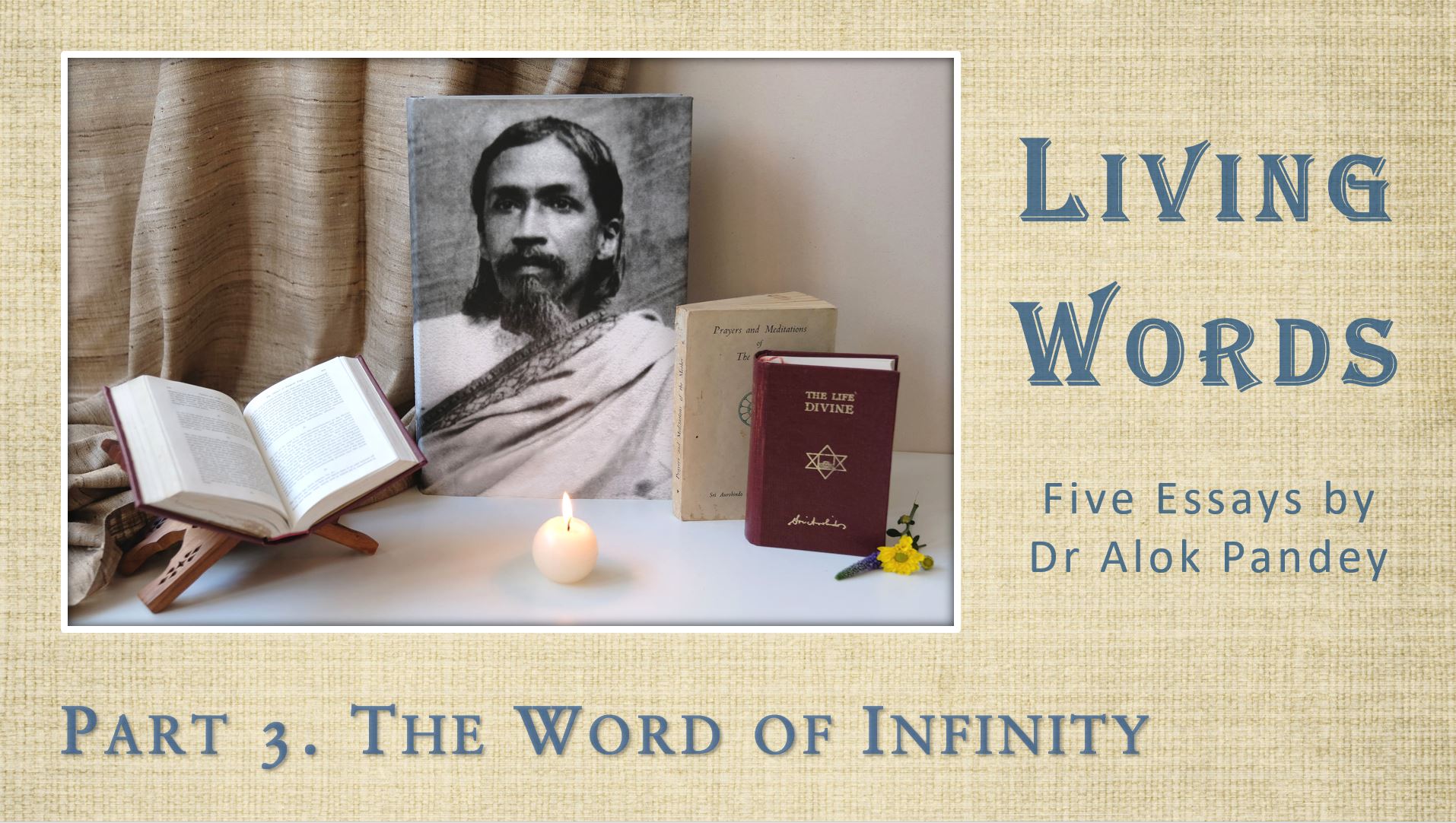This is however one side of the issue when we turn towards Sri Aurobindo’s words. There is another side that arises from the vast and complex nature of the Truth he brings to earth and man. The Supramental Truth is the truth of the Infinite. It cannot be bound or limited by any one-sided formula or understanding of things. Nor even can it be bound by any process or technique for which we may be eagerly looking for. Sri Aurobindo would rather give us a fundamental understanding of how things are and work. He leaves the rest to be adapted by each individual given his or her evolutionary stage. As he points out in the Synthesis itself about the workings of the Divine Shakti:
In the first place it does not act according to a fixed system and succession as in the specialised methods of Yoga, but with a sort of free, scattered and yet gradually intensive and purposeful working determined by the temperament of the individual in whom it operates, the helpful materials which his nature offers and the obstacles which it presents to purification and perfection. In a sense, therefore, each man in this path has his own method of Yoga. Yet are there certain broad lines of working common to all which enable us to construct not indeed a routine system, but yet some kind of Shastra or scientific method of the synthetic Yoga….
What is his method and his system? He has no method and every method. His system is a natural organisation of the highest processes and movements of which the nature is capable. Applying themselves even to the pettiest details and to the actions the most insignificant in their appearance with as much care and thoroughness as to the greatest, they in the end lift all into the Light and transform all. For in his Yoga there is nothing too small to be used and nothing too great to be attempted. As the servant and disciple of the Master has no business with pride or egoism because all is done for him from above, so also he has no right to despond because of his personal deficiencies or the stumblings of his nature. For the Force that works in him is impersonal—or superpersonal—and infinite. [CWSA 23: 46-47, 61-62]
Or else he would give us some luminous and helpful hints, some uplifting strains of divine music that carries us deep and high into hitherto unknown realms of the Spirit. Then mere reading with a quiet concentration and receptivity to the power contained in the words itself becomes a yoga. The word here becomes not just a messenger bringing to us divine tidings from high and luminous worlds but also a vehicle to carry us back to the Source from where the Word has emerged. Ordinarily we dissociate understanding from doing. Therefore men have a tendency to first read, then reflect, then act in accordance with what is written. This is of course needed since mere reading a Teaching without a sincere will to live it is at best a stage of development prior to the beginning of the yogic journey. Here we read with our active mind and the outer consciousness receives the impacts of the word-meanings as our mind understands. Slowly these multiple impacts begin to create a dent and an opening for the inner being to open up and receive the Light. But once the opening has come then the reading itself becomes a yoga since now it is no more the active external mind but the inner being and the inmost soul that hears and receives the Word. The Word then becomes a representative of the Divine Master, a power and force of the author who created it like the Rishis of yore, or brought it down from a higher Source embodying the higher states and the vibrations of Truth into a rhythmic expression wearing the body of sound and letter and word. Sri Aurobindo reveals this power of the Representative Word in the Synthesis:
Ordinarily, the Word from without, representative of the Divine, is needed as an aid in the work of self-unfolding; and it may be either a word from the past or the more powerful word of the living Guru. In some cases this representative word is only taken as a sort of excuse for the inner power to awaken and manifest; it is, as it were, a concession of the omnipotent and omniscient Divine to the generality of a law that governs Nature….
But usually the representative influence occupies a much larger place in the life of the sadhaka. If the Yoga is guided by a received written Shastra,—some Word from the past which embodies the experience of former Yogins,—it may be practiced either by personal effort alone or with the aid of a Guru. The spiritual knowledge is then gained through meditation on the truths that are taught and it is made living and conscious by their realisation in the personal experience; the Yoga proceeds by the results of prescribed methods taught in a Scripture or a tradition and reinforced and illumined by the instructions of the Master. This is a narrower practice, but safe and effective within its limits, because it follows a well-beaten track to a long familiar goal. [CWSA 23: 54-55]
However he also cautions us not to bind ourselves rigidly in a dogmatic manner to the written or spoken word, however great and helpful it may be. The sadhaka is, in his words, ‘not the sadhaka of a book or of many books; he is a sadhaka of the Infinite.‘




